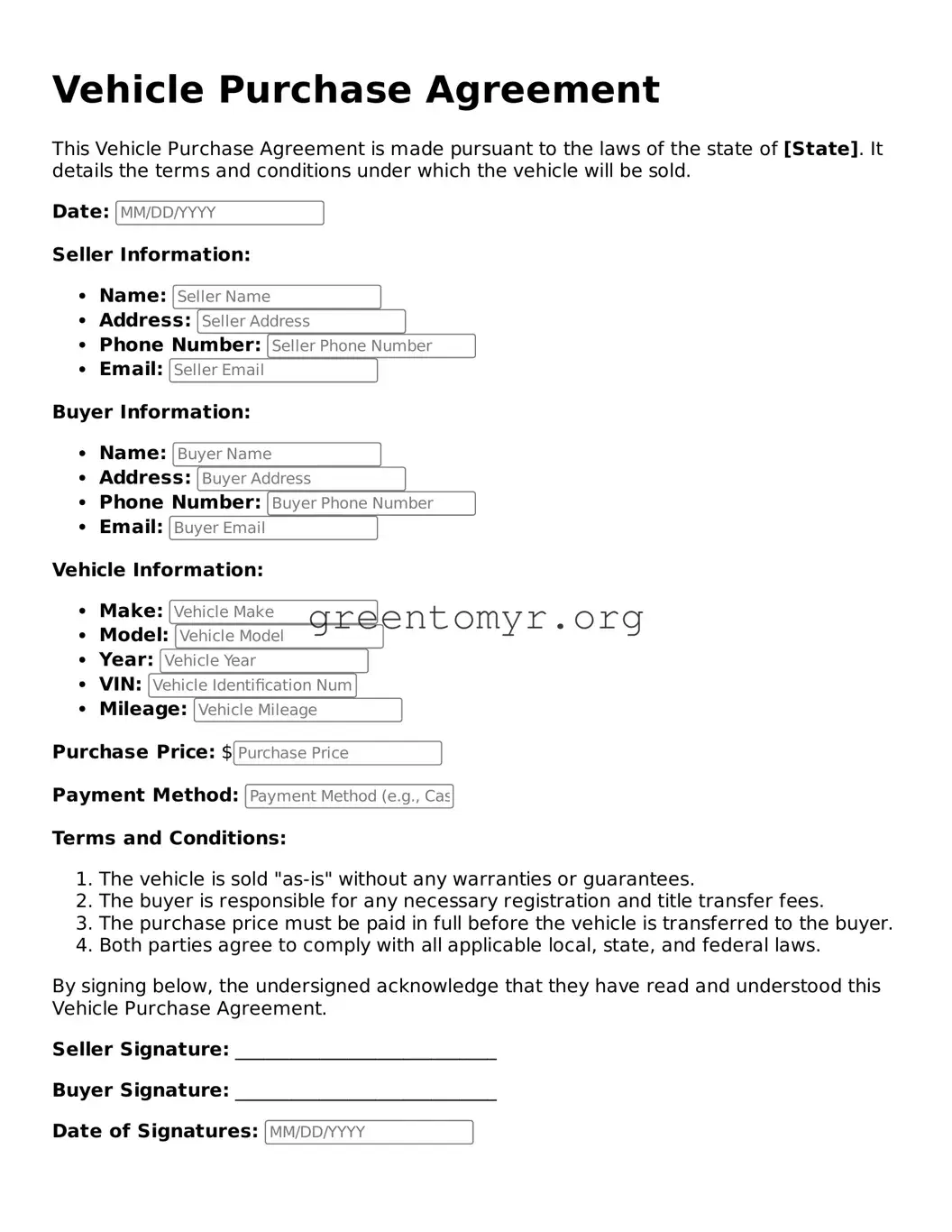What is a Vehicle Purchase Agreement?
A Vehicle Purchase Agreement is a legal document that outlines the terms of the sale between a buyer and a seller of a vehicle. It details the specifics of the transaction, including the vehicle's make, model, and VIN (Vehicle Identification Number), as well as the purchase price, payment method, and any warranties or guarantees associated with the vehicle. This document serves as a critical record of the agreement and is often required for vehicle registration.
Why is a Vehicle Purchase Agreement important?
This agreement serves multiple purposes. First, it protects both the buyer and the seller by clearly defining the details of the transaction, ensuring that each party understands their rights and obligations. Second, it provides legal recourse in case of disputes. If issues arise, such as disagreements about the vehicle's condition or payment terms, the agreement can be referenced to resolve those problems. Additionally, lenders may require this document before approving financing for the purchase.
What should be included in a Vehicle Purchase Agreement?
A well-constructed Vehicle Purchase Agreement should include the following key components:
-
Parties Involved:
Names and contact information of the buyer and seller.
-
Vehicle Description:
Make, model, year, VIN, and any existing conditions or issues.
-
Purchase Price:
Total cost of the vehicle and terms of payment.
-
Delivery Terms:
Date and place of delivery, along with any conditions that may apply.
-
Signatures:
Both parties should sign the agreement to indicate their acceptance of the terms.
Can a Vehicle Purchase Agreement be canceled or modified?
Yes, a Vehicle Purchase Agreement can be canceled or modified, but it typically requires the mutual consent of both the buyer and the seller. If one party wishes to change the terms or back out of the agreement, it is essential to communicate this to the other party as soon as possible. Certain situations, like financing falling through or undisclosed issues with the vehicle, may provide grounds for cancellation. Always document any changes in writing to avoid future disputes.
Is it necessary to notarize a Vehicle Purchase Agreement?
While notarization is not required for a Vehicle Purchase Agreement to be legally binding, it can add an extra layer of security. Having a notary public witness the signing can help verify the identities of both parties and ensure that both are entering into the agreement willingly. This step may also provide additional credibility should any legal issues arise later on. However, most personal transactions do not necessitate this formality.
What if I’m buying from a dealership instead of a private seller?
When purchasing from a dealership, the Vehicle Purchase Agreement may be replaced or supplemented by a sales contract. This contract often includes additional terms, such as financing details or dealership warranties. Make sure to review any agreement carefully and confirm that all aspects of your deal are accurately reflected. As with private purchases, once the contract is signed, it becomes enforceable, so clarity is key.
